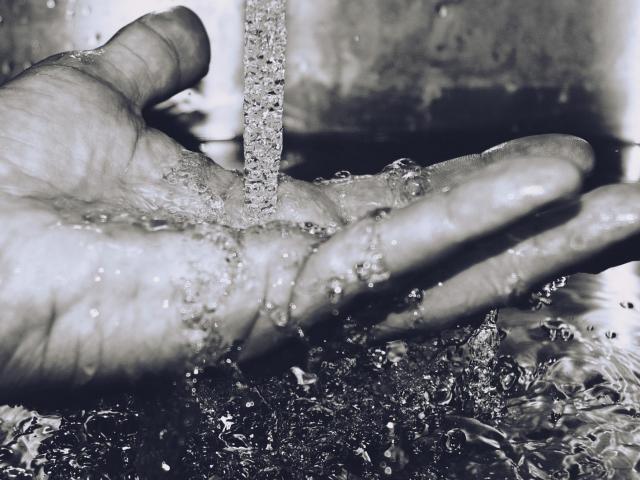Water is one of the oldest compounds in the world, a complex and extraordinary liquid, where its special properties make it unique from other liquids. Humans have stored and distributed water for centuries since the time when man was a hunter and gatherer, the Greeks were among the first to have an interest in water quality, they used aeration reservoirs for purification, and Romans They were the greatest architects in water distribution network constructions that has existed throughout history, after the fall of the Roman Empire the aqueducts were no longer used. During the Middle Ages, a great number of hygiene problems were manifested in water and lead distribution systems, because waste and excreta were poured directly into the water. The people who consumed this water fell ill and died, by the year 1806 in Paris the largest water treatment plant begins, where it sediments for 12 hours before its filtration.
According to the Venezuelan COVENIN norm (2634: 2002), it defines wastewater as that coming from any industrial process, domestic, agricultural, and commercial activity that lost its original characteristics. They are variable in flow and composition, discharges are not always issued continuously, but only at certain hours of the day or night or even exclusively in certain months of the year, depending on the type of company and its production process. These are more polluted than urban wastewater, in addition, with a pollution much more difficult to eliminate. In Venezuela the treatment of wastewater is not very famous, due to the fact that a process and / or educational policy directed to society for its benefit has not been established. Only 14.4% (350) of the emission sources of industrial effluents have a treatment system (United Nations Environment Program, 2010) Aware of the change that has been occurring, with the exponential growth of the population and In the process of sustainable development, there is a need to implement industrial wastewater treatment systems to avoid risks to the health of all living beings and the environment.
The large amount of industrial water that is discharged directly into the bodies of water without prior treatment or in the worst case without proper treatment, is a symptom of poor wastewater management, lack of enforceable environmental regulations, poor use of raw materials, there are no adequate policies for the treatment of wastewater, infrastructure and equipment are obsolete and lack of training in wastewater management to name a few. It is important to improve the efforts of companies in Venezuela to create an environmental culture to reduce and even avoid pollution in water due to the effect of their economic activity.
Currently part of industrial wastewater are those coming from different processes within a particular industry, where its composition varies according to the type of industrial process and even for the same industrial process, where different characteristics are presented in different industries . Its composition reflects the type of raw materials used during the production process. In Venezuela lack adequate treatment plants for each production process, these wastewater are discharged in raw form into the sea or rivers without a previous treatment in the open water courses where they often infiltrate the aquifers and pollute the water resources underground causing the death of the flora and fauna, intoxication and cancer of living beings that are close to these bodies of water, coupled with the indifference regarding the treatment of wastewater. This situation has become critical in areas such as the Lake of Valencia basin, Lake Maracaibo, the lower basin of the Orinoco and Caroní rivers, on the western coast of Paraguana in Falcón, to name but a few. Companies in the country generate more pressure on water resources through the impacts generated by the discharges of their waters and their polluting potential, than by the amount of water used in their production process.
Regarding the above, Rodríguez (2014) states in his report:
Health of the carabobeños is high due to the high contamination of drinking water. For at least five years, the distribution of drinking water in the state of Carabobo has not complied with the provisions of Article 36 of the Organic Law for the Provision of Drinking Water and Sanitation Service. The parameters of water components exceed the maximum allowed and an example is aluminum whose concentration should be 0.20 milligrams per liter and the truth is that it is at 0.44 that is almost 120%, another element out of range in the water is the chlorine that should be 0.5 milligrams per liter is currently its level of 1.2 milligrams while the turbidity that should not exceed 5 units nephelometries has remained between 4.5 and 5.3 unit . (p.4)
- Rodríguez 2014 -
The majority of purification plants were built in the 50s and 70s, so they are not adapted to the needs of today. At the national level, wastewater treatment systems have been implemented inadequately, where the necessary and adequate treatment is not provided to the different types of water coming from the different production processes that are generated in each industry, both public and private. They are used as facades before the governmental entities in charge of ensuring compliance with each of the international standards for wastewater discharge. The implementation of measurement laboratories of physical, biological and chemical parameters that leave aside their ethics and lend themselves to manipulate the results, becoming increasingly complicit in these industries that call themselves sustainable.
In Venezuela, much remains to be done, a better scenario can create a plan in the country for the more efficient application of industrial wastewater treatment systems. Where you can provide a better adaptation of current technology, projects, tenders and construction of the most current and innovative treatment plants. Venezuela has a regulation that regulates the characteristics that the effluents must have to be discharged to the ground or reservoirs of water, such as Decree 883, norms for the classification and quality control of water bodies and effluents or liquid effluents. decree 3219 pertaining to discharges in the lake of Valencia, these decrees have generated controversy in the industries of the country, for not having the appropriate treatments to provide a better discharge of their effluents.
Finally, industrial wastewater treatments in Venezuela are not used correctly and efficiently, there is no doubt that today the industry is the engine of economic development, not only for providing good growth but for being the key to social progress. But it is the competent authorities, such as the Ministry of the Environment, that are responsible for applying and enforcing the regulations established by law for each company. It should invest in new technological and innovative equipment to optimize the performance in the different phases of the process of treatment of wastewater, where the same government in conjunction with the company must finance the acquisition of these equipment to ensure sustainable production and reduce the impact on the environment.


